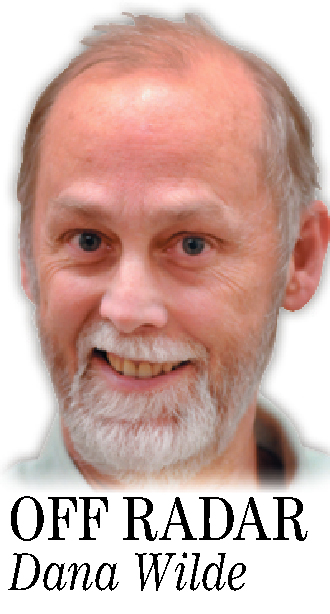“The Feast of Steven” by John Rosenwald is either a novel, as the front cover says, or a “cluster of essays,” as the afterword says, or “more precisely a hybrid of poetry, prose fiction, autobiography, social essays, and cultural study.” What you expect going into it will probably color your experience of it. So let me offer some guidance, in case you are interested, as I was, to get a firsthand picture of post-Mao Zedong China.
Background: In the early 2000s I spent a year and a half teaching American literature in China, and the experience was fantastic and bewildering. I’m always fascinated to hear other the stories of Westerners who’ve spent time there. Rosenwald made his first expedition to China as a young professor in the 1980s, and returned often for decades afterward. Along the way, he and his wife bought a farmhouse in Maine, and Rosenwald built a comfortable literary reputation as a teacher, a translator of Chinese poetry and an editor of Beloit Poetry Journal (which eventually shifted operations from its original home at his college in Wisconsin to Maine, where it is now run out of Windham).
“The Feast of Steven” fictionalizes different aspects of Rosenwald’s life along this shuffling journey between Wisconsin, Farmington, Zhejiang province, Shanghai and Tianjin, China. It isn’t a novel, really, in the usual sense of the term; the different chapters are discreet literary pieces of their own, not parts of a continuous narrative. These pieces are varying parts fiction and parts nonfiction, with poetry interspersed. Once you get oriented to the facts that the “essays” are not continuous, and that the lines between fictional events, actual events, and fictionalized actual events are blurred, the narratives come into focus.
We hear meticulously detailed stories of fixing up the farmhouse and traveling to China, explorations of domestic tensions, conversations about college politics, and discussions of the travails of teaching and communicating with people whose first language is not English (this can be variously funny, disheartening, frustrating and rewarding). One story, “Boundaries,” cryptically dated 2001, 1987 and 1996, gives a particularly vivid account of a trans-Pacific flight on which Steven (the fictional character who pretty clearly stands for Rosenwald himself) hits it off with an attractive Chinese woman who is returning home after a visit to the States. They talk and play cards on the plane, Steven patiently instructs her in correct English grammar and usage, and they take their in-flight meals together. The scene inside the aircraft, including the extensive dialogue between the native Chinese speaker and the English professor, rings remarkably true to what those 14-hour flights are really like. By the time they land in what might be Shanghai, the mutual attraction that has kindled prompts Steven to invite her to stay with him at the foreign experts building on his campus. She accepts. A classic, intimate East-West cultural moment follows.
Why is Steven, who’s married, doing this heavy flirting with a married Chinese woman? Well, it is not unrealistic within the book’s overall subject matter. Other stories probe marital tensions raised by difficulties presented by the remoteness and needs of the house in Maine, past family issues, and the complicated relationship Steven builds with China itself. Should he return to China during the summer after the Tiananmen Square uprising? What should and shouldn’t American English professors be talking about with their Chinese students and friends?
When I was in China, I told one of my colleagues that after more than a year, I could not get anyone to explain Chinese pedagogy to me. How do Chinese professors approach teaching literature?
“We don’t know how,” he said. “That’s why you’re here.” He then guardedly told me some of his own experience during the Cultural Revolution, which killed tens of millions of people including (probably) hundreds of thousands of teachers, closed down universities, and basically razed China’s education system. The next generation of professors was re-inventing, on the fly, how to teach.
“The Feast of Steven” is a book covering this enormously complex encounter of American sensibilities with a culture so huge and multidimensional, it is mind-boggling to begin with. You can get a brooding taste of that complexity here.
John Rosenwald lives in Farmington. “The Feast of Steven” is available by writing to Covered Bridge Press, 144 Court St., Farmington, ME 04938.
Off Radar takes note of poetry and books with Maine connections the first and third Thursdays of each month. Dana Wilde is a member of the National Book Critics Circle. Contact him at universe@dwildepress.net.
Send questions/comments to the editors.




Success. Please wait for the page to reload. If the page does not reload within 5 seconds, please refresh the page.
Enter your email and password to access comments.
Hi, to comment on stories you must . This profile is in addition to your subscription and website login.
Already have a commenting profile? .
Invalid username/password.
Please check your email to confirm and complete your registration.
Only subscribers are eligible to post comments. Please subscribe or login first for digital access. Here’s why.
Use the form below to reset your password. When you've submitted your account email, we will send an email with a reset code.